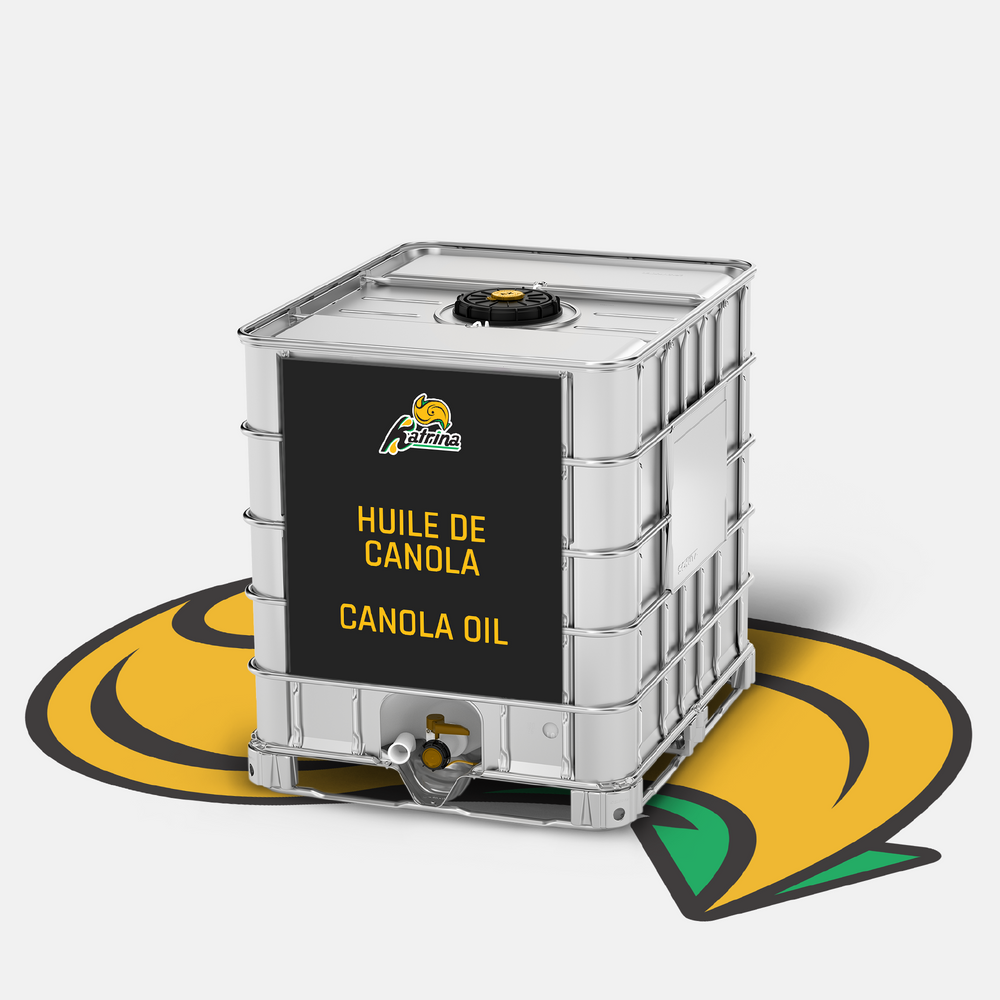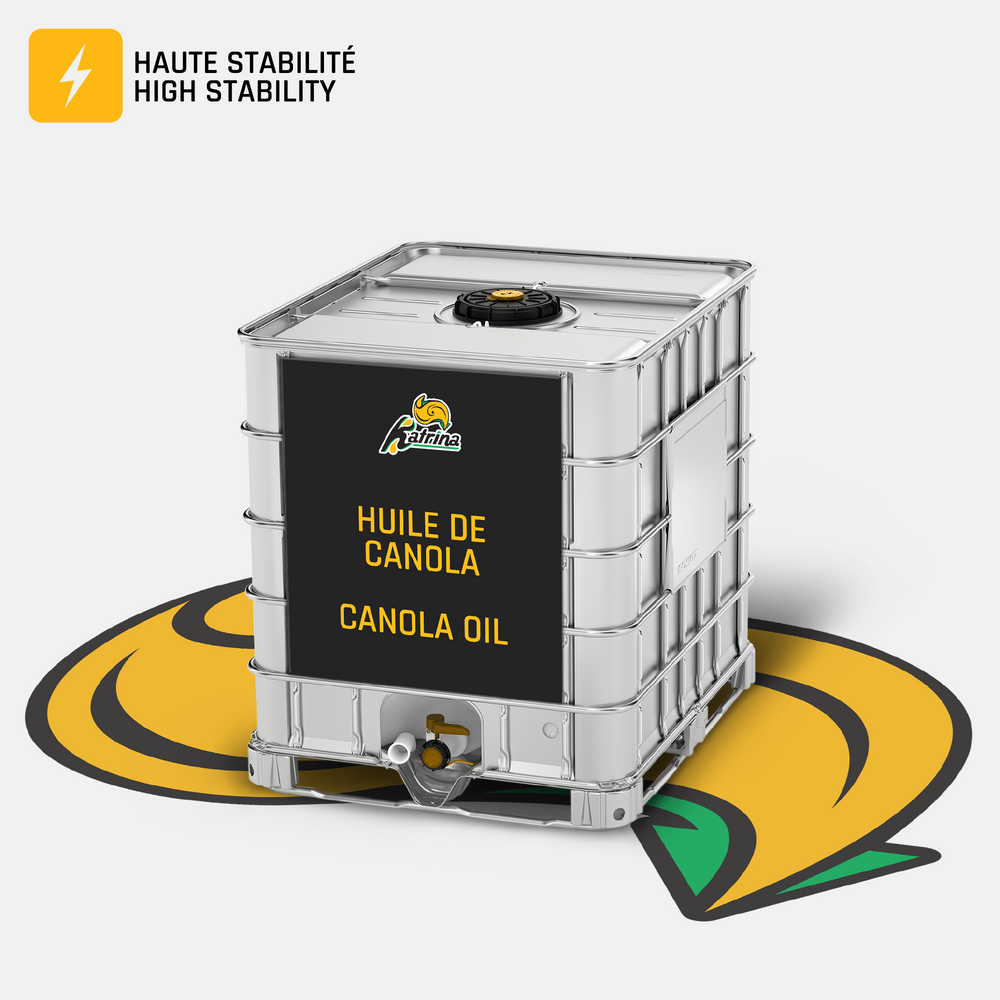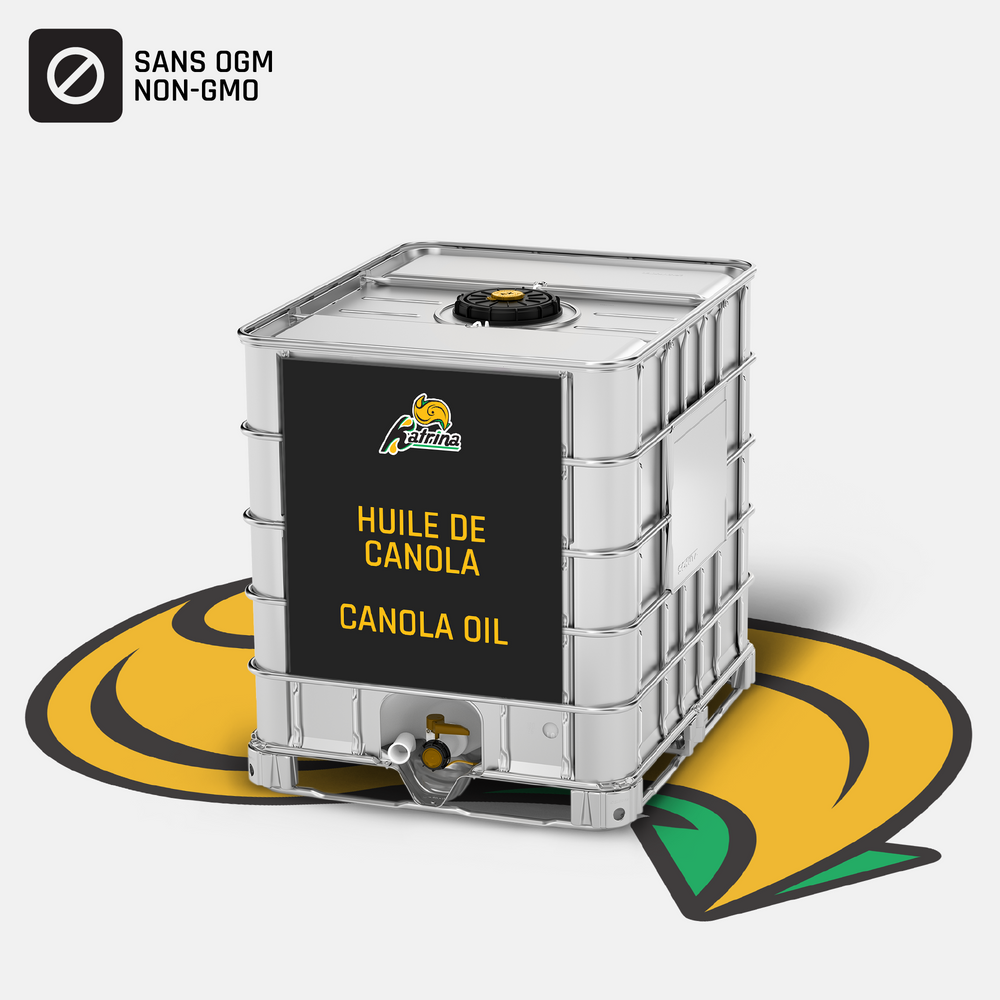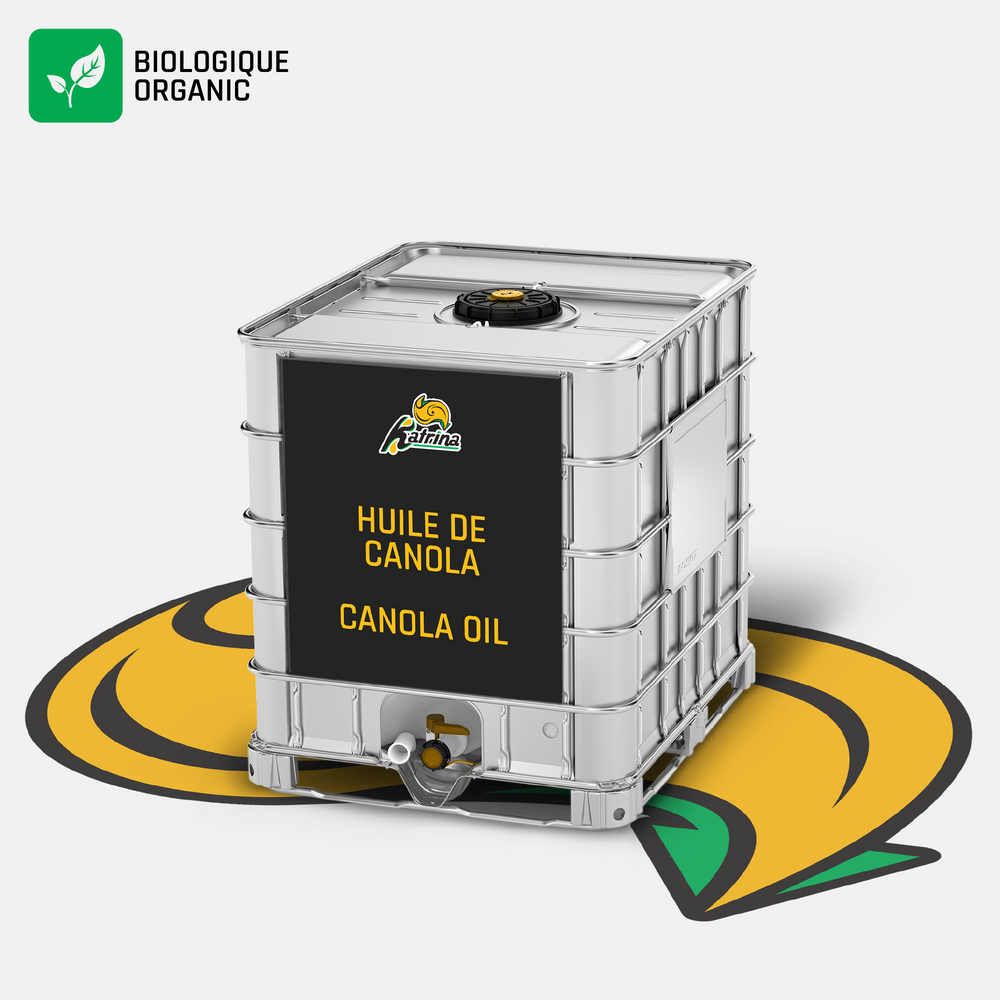Soy Oil vs Canola Oil: Comparison Guide
Choosing the right cooking oil can significantly impact both your food quality and bottom line. Two popular bulk oil options are soy oil (a.k.a. soybean oil) and canola oil. In this comprehensive guide, we'll compare these oils across multiple factors to help you make an informed decision for your establishment and specific needs.
Top Differences Between Canola Oil and Soybean Oil
Here’s a quick summary of the top differences between canola oil and soybean oil:
• Soybean oil has a slightly higher smoke point than canola.
• Canola oil has a slightly better ratio of saturated to unsaturated fats than soybean.
• Soybean oil has slightly more Vitamin E than canola.
• Canola oil has a slightly more neutral flavour than soybean.
Soy vs. Canola: Cost-Effectiveness and Availability
When it comes to commercial kitchen operations, cost is a crucial factor. Both soy and canola oils are among the most economical options available in the market.
According to recent industry data, canola is ranging between US $0.86 to US $1.24 per kilogram, with soybean oil’s price around US $0.88 per pound.

Soy vs. Canola: Smoke Point
The smoke point of cooking oil is critical for commercial kitchens, as it determines the oil's versatility in different cooking applications. Both canola and soybean oils have what are considered “high smoke points”.
Canola Oil Smoke Point: 400-450°F (204-232°C)
Soybean Oil Smoke Point: 450-495°F (232-257°C)
For commercial kitchen use, both soybean and canola are often recommended. Soybean oil has a slight edge for frying, due to its higher smoke point.
Soy vs. Canola: Nutritional Profile
Health considerations are increasingly important to consumers. Here's how these oils compare nutritionally per tablespoon:
| Nutrient | Canola Oil | Soybean Oil |
|---|---|---|
| Total Fat | 14g | 14g |
| Saturated Fat | 1g | 2g |
| Monounsaturated Fat | 9g | 3.2g |
| Polyunsaturated Fat | 4g | 8g |
| Vitamin E | 2.4mg (16% DV) | 1.3mg (9% DV) |
The American Heart Association recommends both oils as heart-healthy options due to their low saturated fat content.
Soy vs. Canola: Flavour Profile and Culinary Applications
Understanding how these oils affect food taste is essential for menu planning, but at the end of the day, these are both generally neutral oils.
Canola oil is known for its light, neutral taste and won’t interfere with food flavours. Soybean oil’s flavour is also quite light, but may be slightly more pronounced and/or have a buttery finish.
Soy vs. Canola: Storage and Shelf Life
Proper storage affects both cost-effectiveness and food quality, so here’s what you need to know about how soybean oil is stored vs. how canola oil is stored.
How to Store Canola Oil?
Canola oil must be stored in a cool, dark place. Canola oil is stable, and easier to store since it’s less prone to oxidation.
What is the Shelf Life of Canola Oil?
The shelf life of unopened canola oil is 1-2 years.
How to Store Soybean Oil?
Soybean oil must be stored carefully, and is susceptible to oxidation. Similar to canola oil, it should be kept in a cool, dark place, and it needs to be in an airtight container. Upon exposure to air, soybean oil will slowly harden.
What is the Shelf Life of Soybean Oil?
The shelf life of unopened soybean oil is 8-12 months.

Making the Right Choice as a Food Manufacturer
Whether you are a restaurant owner or a food manufacturer, the choice between soy vs canola oil comes down to the specifics of your project.
Soy and canola perform similarly when it comes to flavour and smoke point, so you’ll want to consider other differing factors.
Here are a few factors to keep in mind for an easy choice:
• Clientele: Health-conscious consumers may prefer canola for its heart-health reputation. On the other hand, for consumers that are avoiding GMO, we recommend opting for Non-GMO variants, as both soybean and canola oil are typically made from GMO crops.
• Pricing: While both oils are similar in price, you’ll want to consider the local bulk pricing to see the specifics. You can request a quote from us today to get a detailed comparison for your needs.
• Shelf Life: It’s important to consider your bulk needs and storage capabilities, as canola oil has a longer shelf life and easier storage requirements compared to soybean oil.
Frequently Asked Questions
Is Soybean Oil Better Than Canola Oil?
Soybean oil and canola oil are very similar, so it’s difficult to categorize one as “better” than the other. Both are neutral oils, have comparable costs and nutritional profiles, and similar smoke points. These two oils can essentially be used interchangeably.
Which Is Healthier: Canola Or Soybean Oil?
Canola and soybean oil both have similar health and nutritional profiles. There are some small differences: for example, soybean oil has slightly more Vitamin K and canola oil has less saturated fat. However, the differences are very minor, so it’s impossible to definitively say that one is healthier.
Is Canola Oil The Same As Soybean Oil?
Canola oil and soybean oil are 2 different types of vegetable oil. Canola oil is made from the canola or rapeseed plant, while soybean oil is made from soy beans. They are similar types of oil, and often found together in vegetable oil blends.
Does Canola Oil Contain Soy?
Pure canola oil generally does not contain soy or soybean oil, but it’s important to check with your specific provider since soy is a common allergen. It’s also possible to find canola oil and soybean oil together in different blends, so you should check if your vegetable oil is a mix of both. Canola oil does not naturally contain soy or soybean oil.

Conclusion
Both soy and canola oils are excellent choices, so the devil is really in the details.
For most applications, both soybean and canola oil would likely work well. It’s important to focus on the factors that matter most to your specific project and operations, such as price, storage, availability in your area, and consumer preferences.













